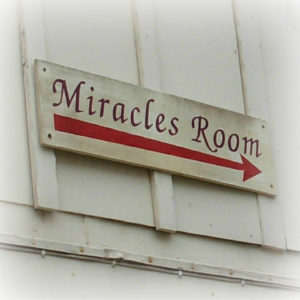Posts Tagged ‘Psalm 23’
Are faith and optimism synonyms?
 Can a Christian be a pessimist?
Can a Christian be a pessimist?
I certainly hope so. Or I’ve got a lot more to be worried about than my general disposition.
Maybe the more important question is whether faith and optimism are synonymous. Do these two words mean the same thing?
Methinks not. I believe they are related, but not the same. I have two lines of reasoning on this:
Observation
- I know plenty of optimists who have no belief in Christ whatsoever. Their lens on life is upbeat and sunny, but based on no Christian eschatological or theological view.
- I know plenty of ardent followers of Christ who generally see things in a negative light. The Bible speaks to discouragement, even amongst believers. And perhaps this is one reason God saw fit to send the Holy Spirit to comfort us in His absence?
- At the point of conversion to faith, I observe no broad, correlating change in “outlook bias” from pessimistic to optimistic across the general population. Read More
Unbiased Ears
“The sheep hear his voice, and he calls his own sheep by name and leads them out. When he has brought out all his own, he goes before them, and the sheep follow him, for they know his voice.”
— John 10:3b, 4 ESV
It’s right there in the text, as plain as day.
 But it’s easy to miss.
But it’s easy to miss.
This passage of scripture is subtitled “I am the Good Shepherd” in our Bibles (though subtitles aren’t in John’s manuscript). As westerners, the subtitle conjures an image of a man cresting a grassy, green hill with his staff in hand, prodding the sheep along from behind the flock. Perhaps dogs are chasing the wooly creatures to keep them from falling into harm’s way as well.
And yet, that’s not at all what the verse says. Read More
The Cup of Deliverance
The night before He died…
Jesus celebrated Passover with His disciples in the Upper Room. Together, they ate the Passover meal according to the ritual laid out in the Jewish Seder, a worshipful ceremony which celebrates God’s work in their national history. The Seder service retells their story through four ‘cups’: the Cup of Freedom, the Cup of Deliverance, the Cup of Redemption and the Cup of Hallel (Praise).
Each section of the Seder — each cup, if you will — has a story that precedes it. At the conclusion of the storyline, participants consume the whole cup of wine or juice. The second cup, the Cup of Deliverance, specifically commemorates God’s work in freeing the Israelites from their slavery in Egypt through each of the plagues and ultimately the death of all firstborn (Exodus 7-12). In my study of the Passover meal, I learned that this second cup is not a full cup of wine.
In the Bible, a full or overflowing cup is a symbol of joy or satisfaction.
The Jewish people take no joy in the many deaths their deliverance required. And so, when the wine is poured for the Second Cup, it is filled only partially. Furthermore, in the telling of the Second Cup, the Jews recount each of the ten plagues and spill a drop of wine for each plague, representing a loss of joy due to the suffering of their enemies.
As we solemnly observe Maundy Thursday and Good Friday in anticipation of Easter this Sunday, I wonder if we might take a cue from Israel and pour our glasses only partially full at mealtimes in the coming days before Easter when our joy is again full.
In this might we remember that our deliverance from the wages of sin cost Jesus His life.
He died for us while we were still His enemies (Romans 5:6-8). His willingness to drink the cup set before Him, purchased our redemption.
Consider participating in or hosting a Christian Seder;
I recommend Ann Hibbard’s book,
Family Celebrations at Easter.

